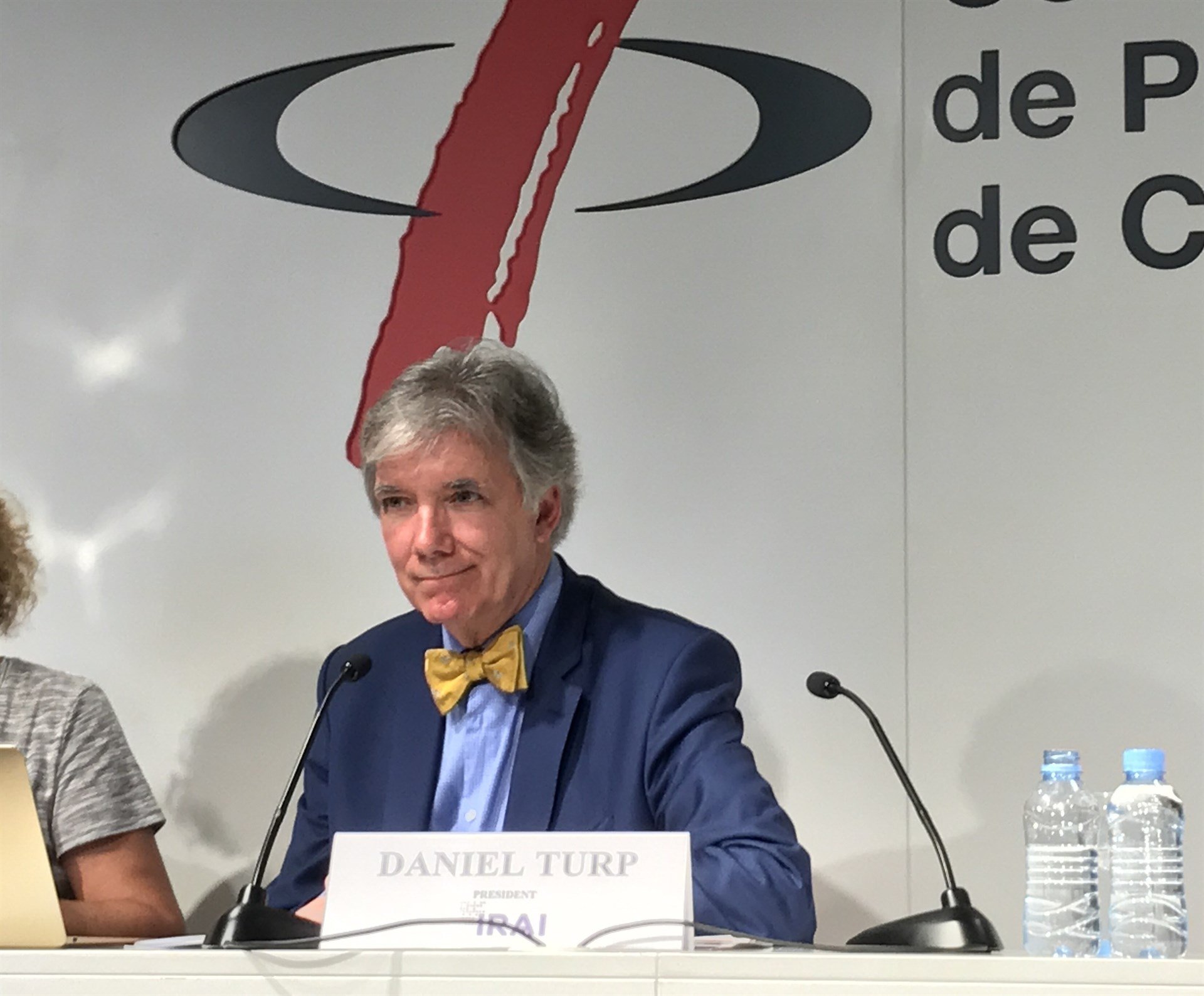International experts from the Research Institute on Self-Determination of Peoples and National Independence (IRAI) have published a report on the Catalan independence process which argues that the "success" of the 1st October referendum will depend on turnout.
IRAI's president, Daniel Turp, in a press conference, said that it will be difficult to question the legitimacy of the result of the 1st October referendum if there's a large turnout, regardless of whether the 'yes' or 'no' side wins.
According to this expert in international and constitutional law from the University of Montreal, turnout "will be a decisive factor" for the vote's legitimacy.
Turnout will also "influence the reaction from Madrid and the international community" in a context where the Spanish government has appealed any move linked to the referendum to the courts.
"The recognition of a new state is a political decision and the international community cannot remain indifferent" in the face of the independence process in Catalonia as long as it's peaceful and democratic, he said.
Asked whether he believes that the European Union would recognise a potential independent Catalonia, he said that "it will do if it's coherent, as it did with Slovenia, Lithuania, Latvia and Estonia".
He also argued that the United States is "very open to the right to self-determination, as it has shown with Canada and Quebec".
An attack on human rights
The report argues that the Referendum Law, passed by the Catalan Parliament on 6th September and suspended by the Spanish Constitutional Court the next day, "respects, in essence, the international standards" for organising this type of consultation and that banning it is an attack on human rights.
Turp criticised the reaction of the central government in Madrid and the judicialisation of the independence movement: "the intervention of the police forces wasn't seen in Quebec nor in Scotland. It's an attack on freedom of speech".
In fact, he encouraged Spanish prime minister Mariano Rajoy to "follow the example of Canada and the United Kingdom, and be able to organise a referendum as any democratic president should be able to do".
Impartial organisation
IRAI was set up in 2016 as an "impartial and non-profit" organisation with the objective of investigating "issues relating to the Self-Determination of Peoples and National Independence".
Besides Turp, Yanina Welp (Switzerland) and Nina Caspersen and Matt Qvortrup (United Kingdom) took part in the report on Catalonia.

